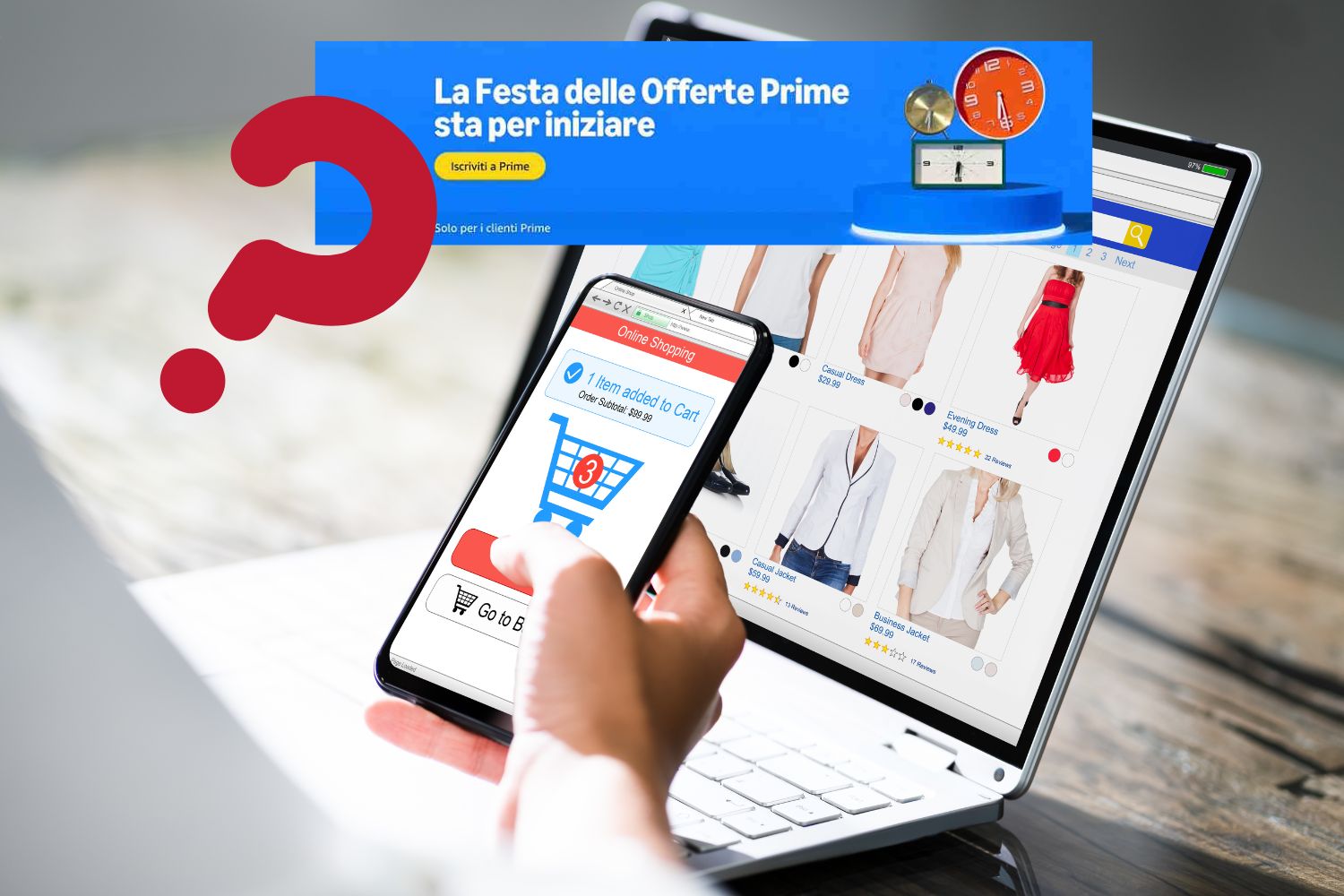Amazon sellers inflate prices in October to create fake Black Friday discounts, exploiting consumer psychology. Rarely Co.’s viral TikTok exposes the trick and urges shoppers to steer clear.

A video posted on TikTok by Rarely Co. (@rarelytok) has gone viral in just a few days, surpassing one million views. In it, the creator exposes a tactic that many consumers have long suspected: in October, Amazon prices are deliberately inflated in preparation for Black Friday. The warning is blunt and to the point: “Don’t buy anything from Amazon in October.”
Manipulated prices to fake discounts
Rarely Co. lays out how the system works—a system that, according to him, leads to discounts that exist only on paper during the Black Friday frenzy. “Amazon forces sellers to take the average price of the previous six weeks to set their Black Friday sale price,” he explains.
Brands, he says, use a precise strategy to shape that average:
“Around the beginning of October, they start drastically raising their prices. They do it because they want that six-week average to be as high as possible, so they can simulate the discount.”
In many cases, sellers will double the price at the start of October, only to slash it by 50% in November and present it as an “unmissable” bargain.
“They’ll increase the price so they can simulate the price drop,”
Rarely Co. emphasizes, calling the entire maneuver a psychological ploy designed to hit consumers at their most purchase-hungry moment.
The psychology behind the trick
Sellers aren’t just playing with numbers—they’re tapping into a well-oiled behavioral mechanism.
“They know that consumer buying psychology is that Black Friday has the deals and that they’re limited,” he says.
The perception of scarcity and urgency becomes their main weapon. Over the years, many shoppers have started to notice that Black Friday deals often aren’t that special. Yet tradition, relentless advertising, and the fear of missing out keep driving millions to cram their purchases into that late-November window.
Rarely Co. flips this logic on its head, warning shoppers to avoid October altogether, a period he calls, without hesitation, “the inflated price trap.”
Consumers are catching on
The comments section of the viral video is filled with stories that back him up. Shoppers recount how they’ve monitored prices over time, only to find that so-called “deals” were often worse than prices from previous months.
“I tracked a product’s price for weeks, and by November it was more expensive than it was in the summer,” one user writes. Another adds, “Finally someone’s saying it clearly. Black Friday is full of fake discounts.”
Some consumers have developed their own defenses. A few take screenshots of their wishlists in advance, others rely on price-tracking tools to follow fluctuations, and many compare offers with those from Amazon Prime Day, which often end up being more competitive.
What to do instead
The TikToker’s advice is straightforward:
“If you plan to buy Christmas gifts or things like that, order now and then wait until Black Friday for anything else. Otherwise, you’ll pay artificially inflated prices.”
Rarely Co. suggests two clear alternatives: either make your purchases by September, before the price-hike period begins, or hold off until Black Friday itself, when prices tend to dip again. In either case, October is the danger zone, the month when fake promotions quietly set the stage for their grand November debut.
A message that strikes a nerve
The video sparked debate because it touches a raw nerve: price transparency online. This isn’t a complex whistleblowing exposé—it’s a simple, clear explanation of a mechanism most people either ignore or underestimate.
As millions gear up for holiday shopping, Rarely Co. is effectively holding up a mirror to a collective illusion: the idea that the best bargains are found right when, paradoxically, they’re often at their most misleading.
The message is dividing opinions, but it’s hard to shrug off. If Rarely Co. is right, then October is the month to keep your wallet firmly shut.
@rarelytok Don’t buy anything from Amazon in October. Here’s why. There’s a secret rule most consumers don’t know about. Amazon requires six weeks of price history for setting Black Friday discounts. That means sellers on Amazon will artificially increase prices through October so they can hit it big with fake discounts on Black Friday.
